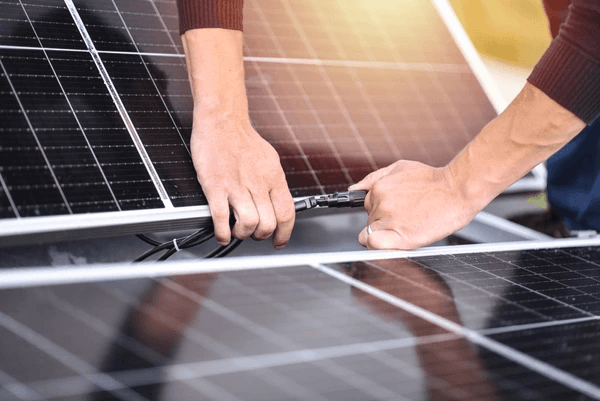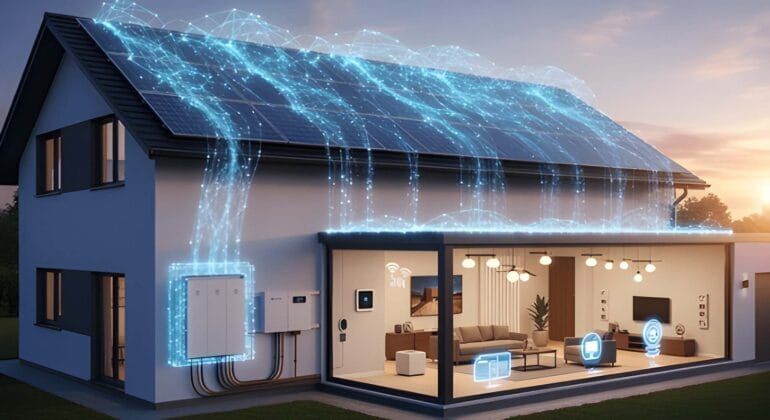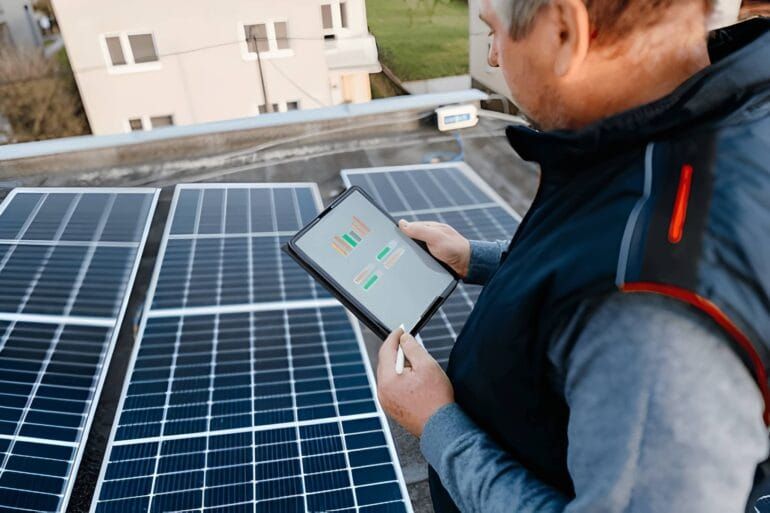With the availability of clean alternatives to the traditional energy sources, solar energy is revolutionizing the way we power our homes. Amongst many uses of solar energy, the most practical and beneficial application of it is water heating. A Solar Hot Water System captures the power of the sun to offer a reliable, cost-effective, and eco-conscious method for heating water in residential and commercial settings.
This chapter outlines the essential characteristics of solar hot water systems and costs and benefits associated with them, together with critical factors that a buyer needs to weigh before making any decision. This will help a homeowner make a more informed decision, keeping in mind energy needs, budget, and environmental concerns.
Why Solar Energy is Gaining Popularity
Increasing adoption of solar energy is gaining momentum due to a variety of factors:
- Environmental Awareness: Rising global awareness of climate change and the need for sustainable living has led many to opt for renewable energy sources, such as solar power, to reduce carbon footprints.
- Economic Advantages: The long-term cost saving of solar energy systems, such as solar hot water systems, is one reason why people consider investing in these systems. As a result of reducing dependence on traditional sources of energy, households save money on utility bills every month and in the long run.
- Technological Improvements: Advances in technology related to the solar energy area have improved upon the efficiency of a solar hot water system and reduced costs, thus providing the solar hot water system for more homes.
What is Solar Hot Water?
A Solar Hot Water System is an appliance designed to use solar energy to heat water for domestic or commercial purposes. These systems usually consist of a solar collector or panel that captures sunlight and a storage tank that stores the heated water. The percentage of hot water used by a house can be achieved through solar hot water systems depending on the system design and geographical location, with up to 80% hot water needs for a household.
Why Costs?
Even as the benefits of solar energy may be so glaring, it is also important to learn how much it would cost to put in and maintain a solar hot water system so that the right decision would be made for purchase. This is because:
- Cost: Installation of a solar hot water system requires a lot of money compared to conventional water heating systems. Though, the money saved is colossal with reduced energy bills over time.
- Long-term Savings: With a calculation of installation cost, including maintenance cost, the buyer can calculate the system’s ROI.
- Options for Comparison: Different solar hot water systems are available at different prices because of the differing technology, size, and complexity of the systems. Therefore, because of the difference, a choice is easily arrived at.
What Is a Solar Hot Water System?
A Solar Hot Water System collects solar radiation to warm water for residential or commercial use. These systems are comprised of solar collectors, a storage tank, and supplementary components like pumps and controllers. Because it uses such an abundant and free source of energy, it is possible for homeowners to provide substantial energy cost savings.
There are two main types of Solar Hot Water Systems:
- Active Systems Active systems use pumps and controllers that circulate water or heat transfer fluid between the solar collectors and the storage tank. Active systems are much more efficient and can handle greater demands. They are best used in larger households or for commercial purposes.
- Passive Systems: These systems rely on gravity as well as natural convection. They are also less expensive, requiring less maintenance than active systems. Even though they are not as energy-efficient, they also possess fewer parts, reducing the likelihood of mechanical failure.
Factors Influencing the Cost of Solar Hot Water Systems
A solar hot water system can vary widely in terms of cost from system to system, due to the following factors:
- System Size and Capacity
The size of the system will depend on the household’s use of water. A four-person family may require a system that is larger than one used in a one-person house. Systems of greater capacities, naturally, tend to be more expensive to have for solar hot water.
- Geographic Location
Your location will have a major impact on how well the system works since it refers to the availability of sun. Locations with high sunshine make for heating efficiently, which means a small enough system and, thus, a lower overall solar hot water system price.
- Installation Costs
Installation accounts for a great percentage of the total cost. Roof type, the intricacy of plumbing connections, and regional labor rates can affect installation costs.
- System Type and Efficiency
Advanced systems with higher solar energy factors (SEF) or better solar fractions (SF) offer greater efficiency but tend to have a higher upfront solar power water heater price.
- Incentives and Financing Options
Government incentives and rebates can substantially reduce the upfront cost of a solar hot water system. Additionally, financing options like mortgages can make the investment more manageable, spreading out the cost over time.
How Much Do You Save with a Solar Hot Water System?
The right installation of a solar hot water system cuts the cost of heating water 50% to 80%. The savings would differ due to the following:
- Water Usage in Households: In homes that use more water, savings will probably be higher.
- Fuel for Backup Heater: Savings depend on the type of fuel used, like natural gas or electricity, and its expense.
- Energy Efficiency of the System: The systems that have higher SEF and SF values tend to result in a relatively greater cost saving.
If your annual cost of water heating is $500, then, with a properly designed solar hot water system, you can save as much as $400 per year, depending upon its efficiency and usage.
Interpretation Energy Efficiency Measures

Solar Energy Factor (SEF)
SEF is the ratio of energy delivered by the system to energy input from conventional sources. The values for systems are usually in the range 2-3. High values indicate good efficiency.
Solar Fraction (SF)
Solar Fraction is the ratio of total load of hot water provided through solar energy. The average SF values are between 0.5 and 0.75, indicating an essential amount of solar energy required for heating the water.
Both metrics are required to be taken into consideration while measuring the cost-effectiveness of a solar hot water heater price and the savings that can be expected.
Calculation of Annual Operating Cost
The calculation of the annual operating cost of a solar hot water system can give one an idea about the long-run cost saving aspect of the system. The steps involved for each auxiliary tank are elaborated as follows.
For Gas Auxiliary Tanks
Find Daily Water Heating Energy:
- Daily Energy (therms) = (gallons of hot water/day) × 8.35 lbs/gallon × 1 BTU/lbs/F × (hot water temperature – cold water temperature).
- Example: For 64.3 gallons/day and a temperature rise of 77°F, daily energy = 0.4105 therms.
Annual Cost :
- Annual Cost = (365 days/year) × (Daily Energy) ÷ (System Efficiency) × (Fuel Cost/therm).
- Example: For a system with SEF of 2.5, fuel cost of $1.50/therm, annual cost = $149.83.
For Electric Auxiliary Tanks:
Determine Daily Energy Use:
- Daily Energy (kWh) = (Gallons/day) × 8.35 × (Temperature Rise) / (3412 BTU/kWh).
Calculate Annual Cost:
- Annual Cost = (365 days/year) × (Daily Energy) ÷ (SEF) × (Electricity Rate).
- For $0.1042/kWh, it will cost $457.54 for one year.
Maintenance and Operating Costs
Modern solar hot water systems are manufactured with long lives and low upkeep. However, there are periodically incurred costs including fluid replacement, component repair or cleaning of the solar collectors to be added to the net cost of purchase of a solar hot water system, which normally aggregates to less than 0.5% of initial system price every year.
Comparing Costs and Payback
Sample Calculation :
If a standard gas water heater costs $500 per year, and a solar system reduces that by 80%, the annual savings would be $400 per year. For a solar hot water system costing $3,000 upfront (after incentives), the payback period would be 7.5 years. Once this period is achieved, the system essentially provides free hot water besides minimal maintenance expenses.
Benefits of a Solar Hot Water System
- Cost Savings: High energy savings for water heating.
- Environmental Benefits: Much lower greenhouse gases than regular methods of water heating.
- Energy Freedom: Shelter from the spikes and shortages of fuels.
- Improved Property Value: Properties with solar PV installations are highly more attractive to buyers.
Considerations Before Buying
- Size Appropriately
Ensure your system size meets your household requirements for water usage. Oversizing or undersizing can significantly affect the cost and efficiency for you.
- Determine Incentives
Determine government rebates and tax credits that can lessen the upfront price of a solar power water heater.
- Compare Quotes
Obtain quotes from at least three different installers to compare their respective costs, warranty, and efficiency metrics.
- Check Certifications
Consider systems certified by reputable organizations such as the Solar Rating and Certification Corporation for performance standards.
- Allow for Future Requirements
Prepare a plan regarding household water use changing over time, such as having new additions to the home and family and thus requiring more hot water.
Conclusion
Investing in a solar hot water system is a smart choice about saving on energy cost and embracing sustainability. There are various forms through which companies, such as Easy Solar, can provide solutions for you, like residential solar installations and solar maintenance services, among others. They ensure optimum performance from the system, so you may save better and reduce your impact on the environment.
This will be possible with the evaluation of the solar hot water system cost, efficiency metrics, and installation considerations. Then, you can make an appropriate decision considering your financial and energy objectives. Discover the diverse solutions developed by Easy Solar to ensure that you benefit from reliable, environment-friendly hot water for years to come. Proper research and planning will not only result in saving money but also yield environmental benefits.







